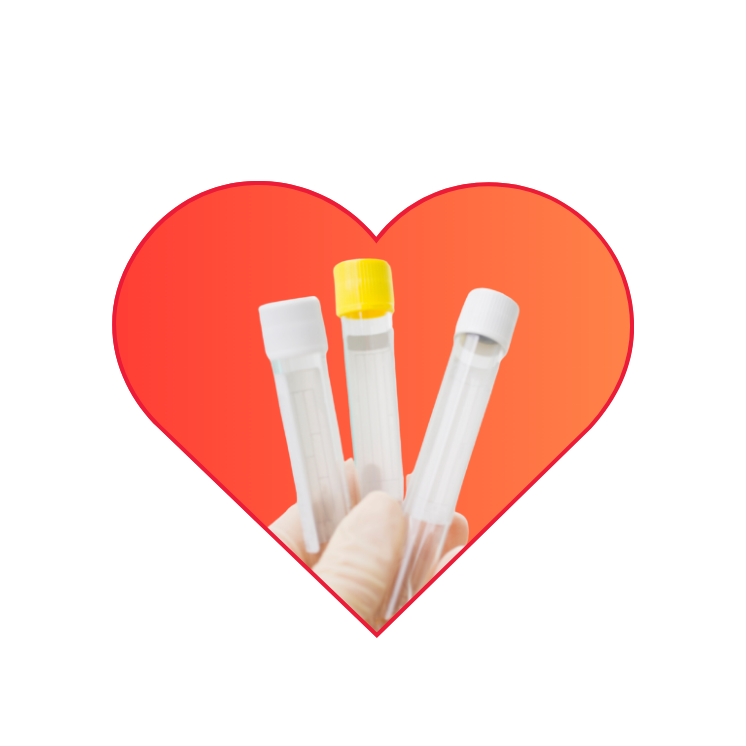

Our online service, which includes STI home testing is called SH.UK — Free STI Testing & Reproductive Health. This is provided by a company called Preventx.
Home testing kits are available to all Newcastle postcode residents. You order online and it will be sent to your home in discreet packaging.
Click here to order your home test kitHome STI testing kits are available to Newcastle Postcode residents, regardless of gender or sexual preference.
For all ages, if you need advice or want to discuss your testing needs before ordering, please call Reception on 0191 229 2999 and book a telephone appointment.
If you live in any other county, please contact your local sexual health clinic or search online for local testing services.
Please follow this link (SH.UK — Free STI / STD Testing & Reproductive Health) to register for the service. Once you have registered, you will have an account where you can log in and order a kit. You will be asked some questions to determine the best tests for you.
If you are experiencing any issues ordering a kit, please call Preventx on 0333 344 4462 or email info@preventx.com
When creating your account, please make sure you register with the correct details such as name, date of birth and address – otherwise we may have difficulty contacting you or performing an ID check if we need to speak with you about your results.
Once ordered, the kit will be delivered by Royal Mail and posted through your letterbox. It will be in discrete packaging.
Before ordering, you will be asked some questions to determine the best tests for you.
For updates on the progress of your testing kit, please log in to your sh.uk account
You will be able to see when your kit has arrived at the lab, and if it is in the process of being tested.
You will be texted telling you that you can log in to view your results once the processing is complete. Please make sure you keep your mobile number and email address up to date on your account if these change before you receive the results of your test.
If you have any infections or results which we need to speak to you about, our Health Advisors will contact you. Calls will come from our sexual health clinic number, or a withheld number. We may then need to call you after you have finished any treatment to follow up.
Patients receive their screening results by text/SMS within two weeks of attending the clinic.
For those patients requesting a letter summarising their results, you will need to bring photo ID to your appointment, which will be scanned and incorporated within the results letter. There is also a charge (payable in cash) of £50 for letters
Sexually transmitted infections (STIs) are passed from one person to another through unprotected sex or genital, oral or anal contact. Anyone who has sex can get an STI, you don’t need to have lots of sexual partners.
The best way to minimise the risk of catching an STI is to use condoms when having sex, though there are several other ways to prevent the chances of getting or passing on an STI.
Condoms work really well in stopping most STIs from being passed from one partner to another. Although they are not 100% guaranteed, when used properly condoms are extremely effective. We recommend that you use a condom every time you have vaginal, anal or oral sex with a new sexual partner.
Find out how to use condoms correctly
Here at Sexual Health Services 4 Newcastle we can check for a number of sexual infections dependent on whether you have symptoms and the type of sex that you have. Common infection that we test for include:
Post-exposure Prophylaxis (PEP or PEPSE) is medication you can take to help reduce HIV transmission after the virus has entered your body. It is a 28 day course of medication that is taken after unprotected sex where there has been a higher risk of exposure.
If you are concerned you might have been exposed to HIV (had unprotected sex with someone whose HIV status you do not know, or know to be positive, or shared injecting equipment), you may be eligible for PEP.
PEP or PEPSE should be taken as soon as possible after sex, and definitely started within 72 hours. The earlier it is started the more likely it is to work. You will need to have an assessment with a doctor or nurse before you are prescribed this medication.
If you are concerned, please urgently contact our clinic, or if outside our normal opening hours please urgently attend an A&E department.